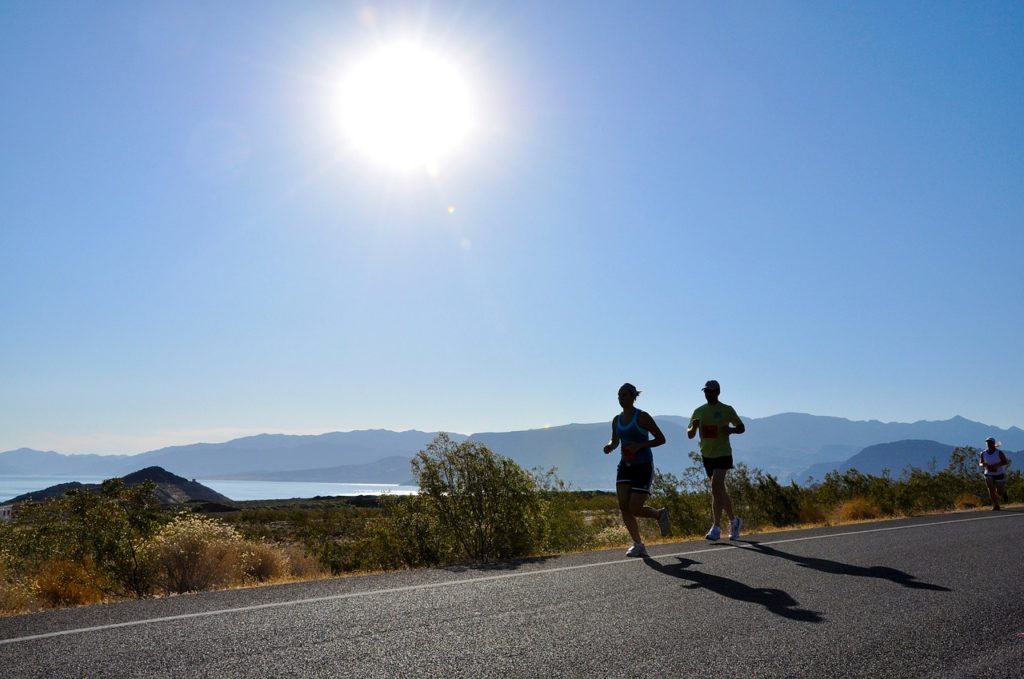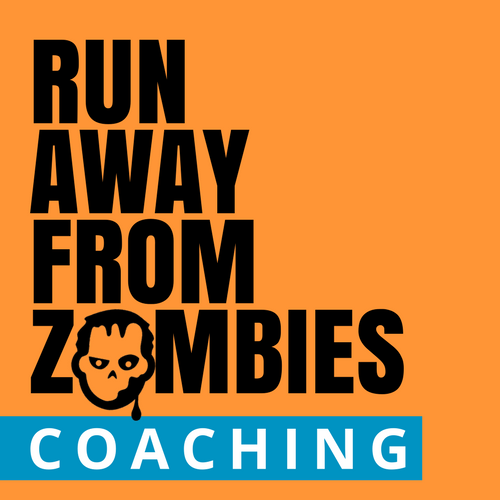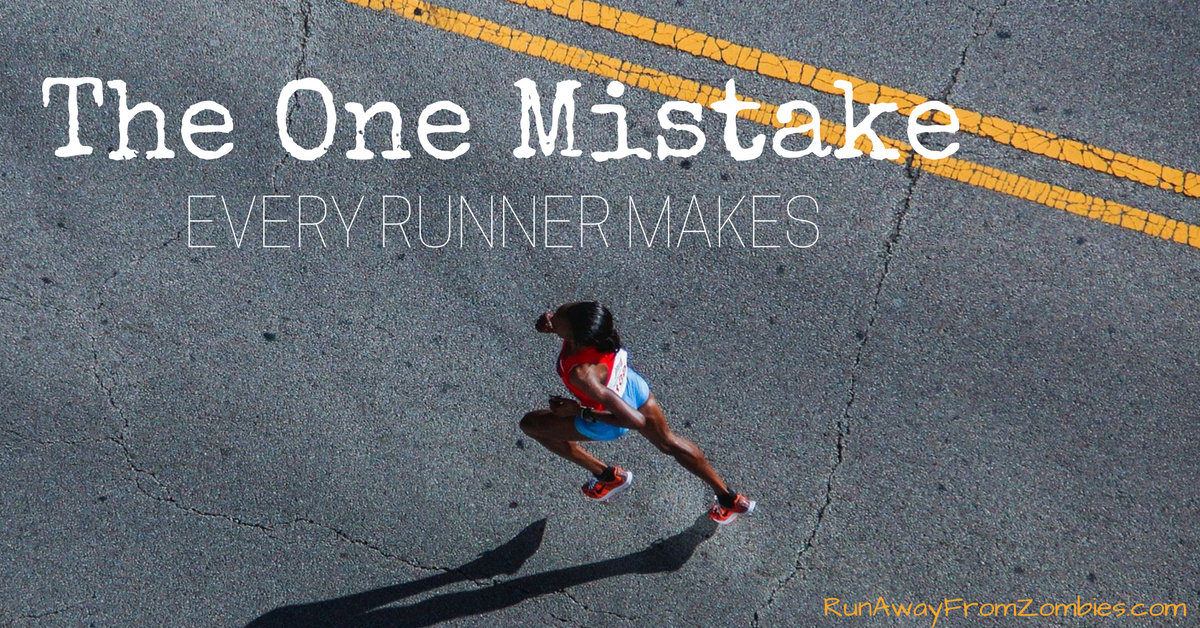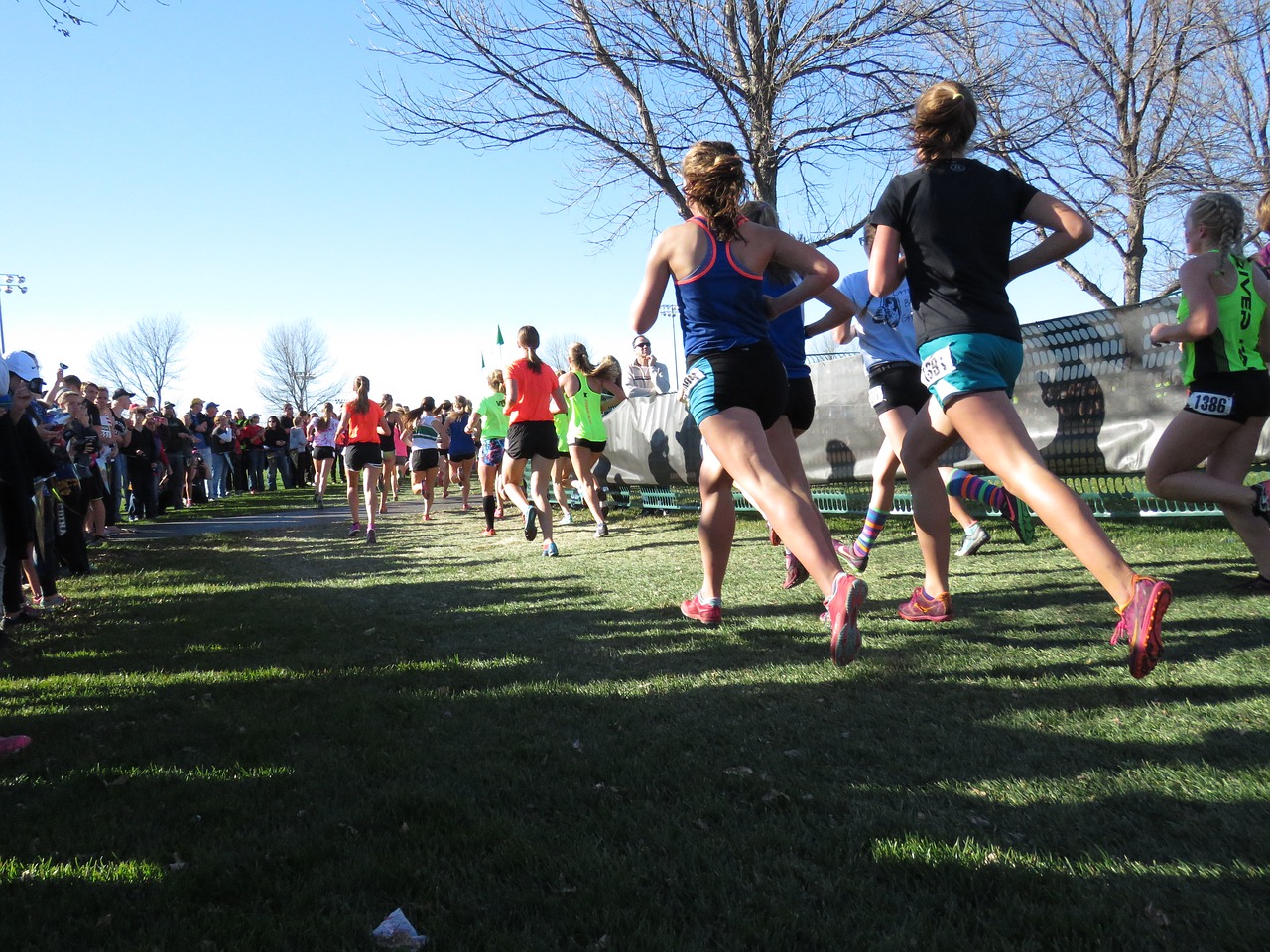 When I talk to new runners, they are all making the same mistake.
When I talk to new runners, they are all making the same mistake.
I usually don’t have the heart to tell them. If I was their coach? Sure. But I’m not their coach, we’re just chatting by the metaphorical water cooler.
Even those who have run for years still make this error.
And I’ve made it, too. Do you?
The One Mistake Every Runner Makes and How to Fix It
So, here we go.
I love you, but you’re running too fast.
If you want to get faster, race faster, and/or run further – you need to spend 75-80% of your runs at conversation pace.
And if you’re a new runner, you need to spend even more time there.
What is conversation pace?
Conversation pace is the pace you can run and still talk to your BFF about your most recent Netflix binge-watch.
If you can’t talk or you’re panting every few words, you’re not at conversation pace.
It’s about a 5 on a 1-10 scale in effort.
Conversation pace is variable. When I write training plans, I give a wide-range for “Easy Pace”. Cool weather and fresh legs might have you flying with ease compared to a hot day after a long run.
How does running slower make me faster, Rebekah?
The two primary energy systems we use to cross a finish line are the aerobic (“with oxygen”) and anaerobic (“without oxygen”) systems.
In anaerobic, you’re running an uncomfortable speed that becomes harder and harder to handle over longer distances, your heart rate continues to increase, and you increasingly feel like you need to slow down. Your body is going into oxygen debt. Your muscles are fatiguing and building up waste products.
You can’t keep up anaerobic for long.
When you run above conversation pace – you pull from both systems and aren’t training either system efficiently.
Even in a super-speedy 5K, you’re using 95% aerobic energy and only 5% anaerobic energy. In a 10K, you’re using 97% aerobic energy and in a marathon >99%.
If you rely too much on your anaerobic system and don’t develop your aerobic system, you’re going to have trouble increasing your distance and getting faster.

The Most Efficient Way to Get Faster or Run Further
You’re going to get your biggest gains by increasing your aerobic base.
I mean that’s 95% of your 5K!
When you specifically train in the aerobic zone, your body will get better at consuming and delivering oxygen to your muscles. You’ll build mitochondria and other fabulous things. And bonus, you’ll be at less risk for injury.
As a new runner, spend all your time at conversation pace to make the best progress. Once you get a good foundation, sprinkle in some non-conversation pace. Start by adding some strides, gracefully speeding up and slow back down in 60-100 meters. Then play around with fartleks.
For the more advanced runner, 75-80% of your runs will be at conversation pace. The remaining percent will be purposeful tempo runs, steady-state runs, goal pace, interval speedwork, etc.
Run Like the Elite
 World-class, professional runners spend ~80% of their training at conversation pace. No lie.
World-class, professional runners spend ~80% of their training at conversation pace. No lie.
So on your next run, do a test talk. Try out the Pledge of Allegiance or The Brady Bunch theme song. If you find yourself not getting enough air, then you’ve pulled into the anaerobic zone. Slow down or take a walk interval to slow your heart rate down and get back into your training zone.
It’s non-intuitive, but you will get faster sooner if you slow down. You’ll become stronger. Your injury risk will lower. You will be able to run further. And you’ll enjoy your runs more.
I’m glad we had this talk. I’ve wanted to tell you this for a while.






This is really important information! It’s exactly what I did wrong when I started running. I thought I had to try to run faster every time, and I got injured as a result and didn’t make much progress. It was only until I started running slower (and running longer distances) that I got faster.
Thanks. You’re doing great. I love watching your progress!
I just started this a 2 weeks ago and it is hard to run slow! I’m keeping my heart rate around 148 and sometimes I to walk to get it down. Hopefully, my pace will decrease in time over the next few months.
Great job! I used to find it hard to run slow, too – it almost takes practice… haha.
Yes it does! I’ve been running for almost 4 years but just heard of this method. I’m done with races for a little bit so thought now would be a good time to try it out.
Greetings! Very useful advice in this particular post! It is the little changes that make the greatest changes. Many thanks for sharing!